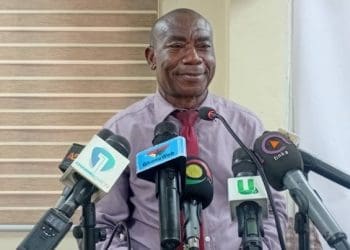Ghana has been ranked fifth among African countries with the highest Schengen visa rejection rates in 2024, according to newly released data by the LAGO Collective, a London-based research group.
The latest 2024 Schengen visa statistics reveal that Ghanaian applicants faced a staggering 45.5% visa refusal rate, highlighting a broader trend of high rejection rates affecting travellers from African countries.
Backed by data from the European Commission and Henley & Partners, the report outlines the systemic challenges African travellers face when applying for Schengen visas.
These include strict documentation requirements, the perception of applicants as high immigration risks, and structural barriers like limited consular access and opaque visa application procedures.
In total, African countries lost nearly €60 million ($67.5 million) in non-refundable Schengen visa fees in 2024.
With each application costing €90, the high rejection rate represents a dual burden: restricted travel freedom and financial loss. Researcher Marta Foresti, founder of LAGO Collective, refers to this phenomenon as “reverse remittances.”
“The poorest countries in the world pay the richest countries in the world money for not getting visas,” Foresti told CNN.
Foresti added that the visa data exposes deep-rooted discrimination, with African nations submitting fewer applications and often experiencing higher rejection percentages.
In Nigeria, for example, over 50,000 short-stay visa applications were denied in 2024, amounting to more than €4.5 million in lost visa fees. Across the African continent, some Schengen visa rejection rates soared as high as 62.8%.
Here are the top 10 African countries with the highest Schengen visa rejection rates in 2024:
- Comoros – 62.8%
- Guinea-Bissau – 47.0%
- Senegal – 46.8%
- Nigeria – 45.9%
- Ghana – 45.5%
- Republic of the Congo – 43.0%
- Mali – 42.9%
- Guinea – 41.1%
- Burundi – 40.0%
- Ethiopia – 36.1%
The report urged greater transparency, fairness, and reform in the Schengen visa process, emphasising the need to dismantle what many experts consider a growing obstacle to global mobility and economic opportunity for African citizens.













